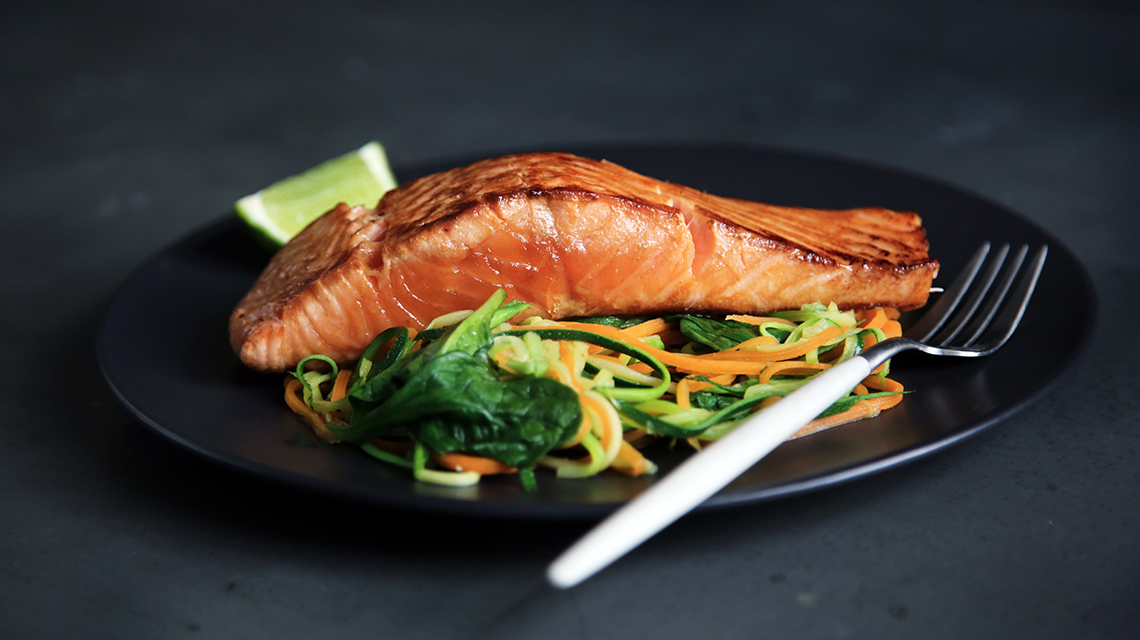
The Best Foods to Eat to Help Prevent a Stroke
We all know that a balanced diet and an active lifestyle is the key to good health.
NHS and Government guidelines recommend that we should eat a minimum of 5 pieces of fruit and vegetables a day and aim to partake in around 150 minutes of physical activity each week.
And depending on who you follow on social media, scrolling through Twitter, Facebook and Instagram can act as a daily reminder to eat better and spend more time being active!
Making certain changes to your diet can reap enormous benefits. It can also help ward of a stroke.
The Impact of Diet on Stroke
There are a number of risk factors that can lead to an individual suffering a stroke. These include:
- Smoking
- Alcohol and drugs
- Age and gender
- Stress and depression
The quality of your diet can also have an enormous impact.
In essence, a poor diet may lead to an increase in blood pressure and LDL cholesterol, both of which increase your chances of a stroke occurring.
By carefully controlling your diet, not only will you dramatically decrease your chances of suffering a stroke, you will feel better and maintain general all-round health.
Foods That Prevent Stroke
Increasing your consumption of the following food types will play a big role in limiting your chances of suffering a stroke.
1 – Fruit and Veg
This may seem quite obvious, but there are a number of reasons why eating a range of fruits and vegetables can limit your chances of suffering a stroke.
Fruits and vegetables are packed full of vitamins and nutrients; they are also naturally low in fat and high in fibre. This winning combination can help you lose weight and keep your heart healthy.
People with high fibre diets also tend to feel fuller for longer and therefore are less inclined to snack on whatever is available.
Top tip –
Studies indicate that foods rich in potassium can help lower your risk of stroke. Next time you’re in the supermarket, be sure to add the following to your basket:
- Bananas
- Spinach (cooked)
- Broccoli (cooked)
- Potatoes and sweet potatoes
- Mushrooms
- Prunes
- Oranges
- Honeydew melon and cantaloupe
2 – Fish
Lowering your blood pressure and controlling the levels of LDL cholesterol in your blood is key to reducing your risk of stroke.
One way of lowering your cholesterol and blood pressure is by increasing your intake of omega-3 fatty acids, which are abundant in certain types of fish.
Not only will eating fish help you limit your chances of suffering a stroke, it will also help you lower your risk of heart disease.
Top tip –
The following fish contain the highest levels of stroke-busting omega-3 fatty acids:
- Mackerel
- Herring
- Salmon
- Trout
- Sardines
Government guidelines recommend eating at least 2 portion of fish a week.
3 – Whole Grain
The buzz surrounding whole grain foods has been palpable in recent years. And for good reason too!
According to Heart and Stroke:
“People who eat three or more servings of whole grain foods each day have up to 30 percent less risk of developing heart disease compared to people who rarely eat whole grains”
The main reason for this lies in the difference between regular grains and whole grains.
Regular grains are refined and used to make food staples such as flour, white bread and white rice. During the refining process, the bran and germ are removed, which eliminates many of the nutrients.
In contrast, whole grains are unrefined – the germ and bran are not removed and therefore the nutrient content is maintained.
Top Tip –
Whole grain foods are full of vitamins, minerals, fibre and antioxidants, all of which promote heart health and lower your risk of stroke. Be sure to incorporate the following into your diet:
- Whole grain bread
- Brown rice
- Oatmeal
- Quinoa
- Bulgar wheat.
Foods That Prevent Stroke – The Best of the Rest
The following foods are also recommended to help limit your risk of stroke:
Garlic: Garlic contains a compound known as allicin, which has been proven to lower blood pressure;
Coffee & green tea: Studies show that regular coffee and green tea consumption can lower the risk of stroke by up to 20%;
Chocolate: Researchers at the University of Aberdeen discovered that eating a moderate amount of chocolate lowers the risk of both heart disease and stroke;
Citrus foods: Women can reduce their risk of stroke by up to 19% by regularly eating citrus fruits such as oranges and grapefruit;
Nuts: Studies have revealed a link between nuts and cardiovascular protection.
If you have suffered a stroke and are interested in connecting with fitness professionals that specialise in exercise-based recovery, sign up to the A Stroke of Luck Member’s Club today!
